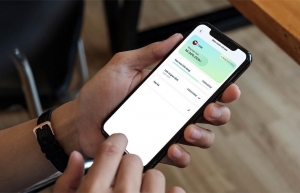Acquisitions fuelling buy now, pay later trends
Buy now, pay later (BNPL) has grown at an annual rate of 60-70 per cent in the United Kingdom in recent years. In the United States, it is expected to grow 10-15 times over the next three years, representing up to $1 trillion in transactions.
 |
| Sen Ganesh-Partner Bain & Company and Glen Williams-Advisory partner Bain & Company |
Not surprisingly, incumbent companies in payments are rushing to get into the act. And when they evaluate whether to build or buy, many are discovering that despite high valuations, the fastest way is with mergers and acquisitions (M&A). Out of all payments deals, BNPL deals represented 50 per cent of value in 2021, a boom year for M&A in payments.
The megadeal of 2021 was Square’s all-stock acquisition of BNPL company Afterpay for $29 billion. Square (now renamed Block) will integrate Afterpay with its seller ecosystem and Cash App, which has 70 million users. But also there were a number of smaller deals, including PayPal’s purchase of BNPL firm Paidy in a $2.7 billion largely cash deal to enable access to its base of more than six million customers across Japan.
BNPL players are also adding capabilities to bulk up their offerings and boost growth. Sweden-based fintech Klarna made six acquisitions in 2021 alone, everything from online trip planner Inspirock to Apprl, a software-as-a-service platform provider that allows content creators and retailers to work together. Klarna also picked up mobile wallet company Stocard, social shopping platform Hero, and AI-enabled shopping tool Toplooks during its 2021 shopping spree.
Meanwhile, payments companies must deal with the prospect of more consumers using digital and account-to-account payments. One option for them has been to diversify beyond traditional cards by acquiring new payments players, not only in BNPL but also in companies offering account-to-account and wallet payments, and ancillary services such as know-your-customer solutions.
Visa has been pushing into consumer and business payments and extending into account-based payments. For example, it expanded Visa Direct, its global real-time platform for peer-to-peer and business-to-customer payments. The company made two major acquisitions in 2021: European open banking platform Tink and cross-border payments platform CurrencyCloud.
Mastercard has focused its acquisitions on payment infrastructure and services. It acquired Danish open banking fintech company Aiia, digital identity management company Ekata, blockchain analytics company CipherTrace, and bill pay solutions player Arcus, for example.
Piling up such tuck-in deals, however, will not be easy. There is increased regulatory scrutiny involving antitrust concerns in markets where these companies hold leadership positions. For example, Visa abandoned its $5.3 billion deal for Plaid before it even had a chance to succeed, following a US antitrust lawsuit alleging that Visa’s acquisition would eliminate a competitive threat to its online debt business.
In 2019, large deals among payments companies included Fiserv’s acquisition of First Data, Fidelity National Information Services’ acquisition of Worldpay, and Global Payments’ purchase of Total Systems Services. This continued in 2020, with deals such as the Worldline and Ingenico merger and Italian payments processor Nexi’s $9.2 billion deal for rival Nets, creating Europe’s biggest payments firm by volume.
In addition to Square/Afterpay, one of the bigger deals involved PayU’s acquisition of Indian payment gateway BillDesk for $4.7 billion to help it expand into emerging markets. More common, though, were larger techs pursuing tuck-in acquisitions, such as Fiserv’s $206 million purchase of Pineapple Payments and Stripe acquiring India’s Recko.
Smaller payment fintech groups were also selectively acquired to bulk up and penetrate new markets. That was the case with payment-as-a-service platform Rapyd’s $100 million deal for Icelandic payment company Valitor, for example.
In an effort to increase focus on its global corporate, commercial, and wealth businesses, Citigroup has divested its retail banking business in 13 markets, most of them in Asia, providing a unique opportunity for local and regional banks to scale up their credit card business and gain share in the consumer space. National Australia Bank (NAB) took advantage of the opportunity by buying Citi’s consumer business, a move that put NAB in the No.2 position in the country’s credit card business.
Similarly, in the Philippines, UnionBank purchased Citi’s consumer business to boost growth in its retail banking sector. And UOB Group acquired Citi’s consumer banking franchises in Indonesia, Malaysia, Thailand, and Vietnam to increase its scale across Southeast Asia.
Payments deals are coming with increasingly high valuations, making it more challenging to do large-scale deals, although that may change along with market fluctuations. At the same time, the growing popularity of stock deals has made it difficult for banks to participate. As a result, players need to be clearer and more selective on the strategic rationale for acquisitions.
Deals intended to provide a specific capability come with their own challenges. Because of the complexities involved with integrating diverse payment platforms, players may struggle to realise the intended benefits. Combining companies’ infrastructures can create redundancies in functionality. It can also make maintenance more expensive.
As companies struck deals, private equity (PE) investors showed increasing interest in payment industry M&A transactions. For example, Advent International and Eurazeo, a French-based PE and venture capital firm, bought Planet, a transaction processing service provider. PE firms’ involvement increases the competitiveness of deals.
Finally, as deals in BNPL grow in number, regulatory scrutiny for consumer protection concerns will become more of an issue worldwide. Companies acquiring to expand a geographical presence need to be prepared to address possible regulatory issues – and, when necessary, be prepared to walk away from deals.
 | Clearing the way to legal support for BNPL services As of 2022, Vietnam’s population is close to 100 million, with two-thirds being of working age. The country is home to a rapidly growing e-commerce market, yet surprisingly, it is also one of the Southeast Asian countries with the lowest credit card penetrations, estimated at 4.1 per cent in 2021. |
 | BNPL products come to aid of consumers The adoption of short-term financing by consumers continues to grow in Vietnam as local and foreign financial companies gear up to meet the soaring demand. |
What the stars mean:
★ Poor ★ ★ Promising ★★★ Good ★★★★ Very good ★★★★★ Exceptional
Related Contents
Latest News
More News
- Cashless payments hit 28 times GDP in 2025 (February 04, 2026 | 18:09)
- SSIAM and DBJ launch Japan Vietnam Capital Fund (February 04, 2026 | 15:57)
- Banks target stronger profits, credit growth in 2026 (February 04, 2026 | 15:43)
- Vietnam on path to investment-grade rating (February 03, 2026 | 13:07)
- Consumer finance sector posts sharp profit growth (February 03, 2026 | 13:05)
- Insurance market building the next chapter of protection (February 02, 2026 | 11:16)
- NAB Innovation Centre underscores Vietnam’s appeal for tech investment (January 30, 2026 | 11:16)
- Vietnam strengthens public debt management with World Bank and IMF (January 30, 2026 | 11:00)
- Corporate bond market poised for stronger growth cycle (January 28, 2026 | 17:13)
- Vietnam's IPO market on recovery trajectory (January 28, 2026 | 17:04)

 Tag:
Tag:


















 Mobile Version
Mobile Version